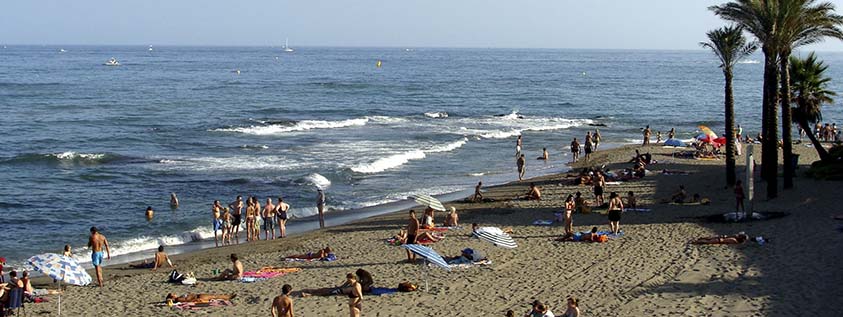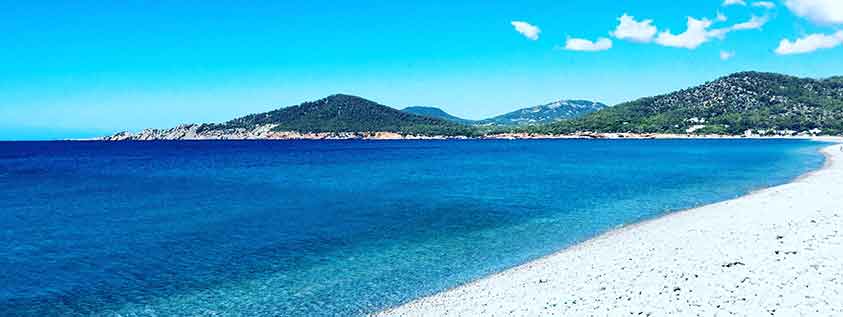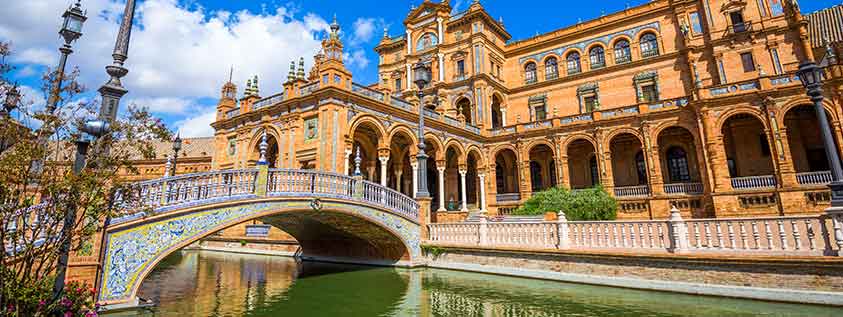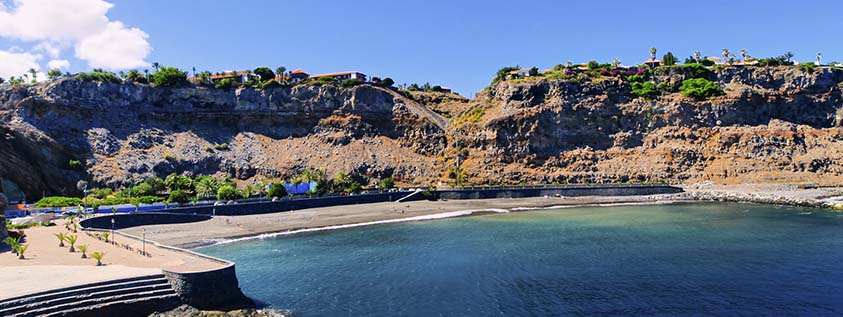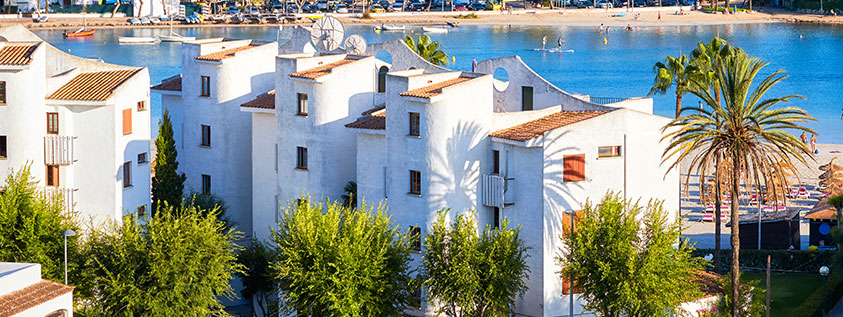How to Retire in Spain the Right Way
Retire in Spain, and you’ll quickly see why it’s become a top choice for expats looking to enjoy their golden years. With its warm climate, world-class healthcare, and rich culture, Spain offers an unmatched quality of life. In this article, we’ll explore what makes it such an appealing retirement destination—and how you can make the move yourself.
Why Spain is a great place to retire
The climate is one of the main reasons people consider retirement in Spain. While Spain is famous for its Mediterranean climate, which means it is hot and dry in the summer and not too cold in winter (with some rain), there are locations where it can rain all year round and even snow.
People also retire in Spain because of the coastline, sometimes referred to as “8th continent” because of its geography. People from all over Europe enjoy Spain’s beaches during the summer months, and it has a wide choice of coastal towns to choose from depending on your preferences.
Retiring in Spain is also popular because Spain has a strong and diverse culture, making it an exciting place to live, with many Spanish traditions. Popular traditions in Spain can be experienced through the Spanish festivals that are unique in almost every town and city. Many of these festivals are associated with the country’s strong Roman Catholic roots, such as Semana Santa (Holy Week), which is celebrated across Spain during Easter.
Seville, Barcelona and Madrid are other great places for foreign retirees to live in Spain. The country’s cities are cosmopolitan and very westernised, with a vibrant nightlife. They also have many amenities for retired ex-pats, such as museums, art galleries, theatres and libraries.
Considerations before you retire in Spain
Some downsides of retiring in Spain are the taxes and the visa requirements. Before making any decisions, it is essential to consider what you will get in return for your payment. The Spanish tax system, for example, is often regarded as complicated by foreigners who are new to living in Spain. You may also need a visa if you want to retire in Spain. Some types of visas allow retirees on lower incomes to live in Spain, whereas others require you to prove that you have financial backing.
Another consideration is how comfortable your retirement condition will be based on the area you choose to live in. It’s essential to consider public transport and whether there are shops, banks and supermarkets nearby (if not having a car). If you enjoy sport, it’s worth checking what facilities are available for you.
Being a tax resident vs tax non-resident
You are a tax resident when staying in Spain for more than 183 days. For people with a wealth of more than 700.000 euros, this means you will have to pay wealth tax. Next, you will need to pay income tax on worldwide income.
However, being a tax non-resident also has its perks as it means that you have the same rights to use public services and social security.
If you are a non-resident for tax purposes, you will only pay tax on Spanish source income, both earned and unearned (capital gains), and not foreign source income.
Spanish Healthcare System
The country has an established and high-quality health care system used by ex-pats and locals alike, but it is cheaper than in other countries such as the United States. Spain’s hospitals provide a full range of services, including specialised treatments and surgeries for cancer and heart disease conditions. Under certain circumstances, you can also collect foreign social security benefits in Spain.
Private health insurance
Private health insurance is available in Spain and is a good idea if you do not want to be treated by the state system. However, some expats prefer to be treated at a public hospital because they feel more accessible and efficient care.
It is important to note that expats living in Spain who are a part of the European Economic Area can buy health insurance from their home country. For example, German expats can get a German-based private health plan before living in Spain.
Public healthcare system
The red cross insurance funds the Spanish public health system. It would be best to take out this insurance when you register in Spain. The state takes care of people with low income and people that do not have their healthcare insurance.
Another thing you should know about the healthcare system in Spain because it may be more challenging to find a doctor who speaks your native language, and this is because most of them are trained in Spanish.
To sum up, Spain has a robust social security system, and the public healthcare system provides good services for its people. However, if you want more personal attention and care, it’s important to take out private health insurance.
Best places in Spain for retirement
The ideal place to retire in Spain depends on the lifestyle you envision. If you dream of waking up to a warm Mediterranean breeze, cities like Badajoz or Toledo might not be the best fit. That’s why it’s essential to define the kind of retirement you want before choosing a location. With so many diverse regions, Spain offers something for every preference—you just need to find the perfect match. Below, you will find the most famous places to retire:
Costa del Sol
The Costa del Sol is the most popular place for expats to retire in Spain. It has a Mediterranean climate that gives way to hot summers and mild winters, which makes it an ideal choice for winter sun-seekers who want to get away from the cold, grey days of Europe’s Northern climes.
If you love golf, you can choose from a wide variety of golf courses on the Costa del Sol. Apart from that, you can also enjoy the pristine beaches dotted along this area.
It’s not only adults who will find fun in this region, but there is also plenty for children and adolscents. They can ride in quad bikes and 4X4s in some areas and take horse riding lessons in other spots. Other activities include going to outdoor adventure parks, paintballing and indoor water parks that are open throughout the year.
Costa Brava
Spain’s north-eastern region is another popular location for those who want peace as well as a taste of beach life. The Costa Brava has beautiful beaches with crystal clear waters, and many places offer sailing lessons to those who want to try something new.
You can head inland and visit medieval towns such as Pals and Begur, known for their well-preserved streets and architecture. A trip to Barcelona is also a must when visiting in the Costa Brava region.
Canary Islands
The Canary Islands are a popular option for those who want to retire in Spain. There are plenty of activities to keep you occupied, such as hiking, whale and dolphin watching and sherry tours. You can also try water skiing, surfing and kayaking in the sea.
Some islands have golf courses, so if you love this sport, you will be spoilt for choice! There is a range of restaurants and bars where you can enjoy the local cuisine, and there is ample opportunity for sightseeing and exploring the history of these islands.
Costa Blanca
The Costa Blanca is a stretch of the coastline in Spain, where you can spend your twilight years. It has a range of restaurants and bars that serve a range of delicious foods to enjoy. You won’t go hungry at all!
There are many activities from cycling paths, golf courses, spas and horse riding lessons to museums and art galleries. The Mediterranean climate also means that you can spend time at the beach sunbathing, swimming and sailing. All in all, there is something for everyone here!
How to not feel like an outsider
When you retire in Spain, you might feel like an outsider because of the language barriers. When you want to feel less like an outsider, it’s essential to take language courses.
Spanish people are famous for being very warm and friendly so you shouldn’t have a problem making friends. They will be delighted that you have taken the time to learn their language! However, below you can find four tips to make you feel better:
1. Learn the language
There is no denying that not knowing the language will make you feel like an outsider. When you want to avoid this, it’s essential to learn some basic words and phrases before you go. After arriving, choose to continue your learning at a language school or on one of the online platforms. Spanish is a beautiful language to learn.
2. Make friends with other foreigners
To help you settle in, make friends with other ex-pats in your area. You can even hire a caretaker or a housekeeper who speaks the language to help you learn everything from counting money to going grocery shopping. This will also mean that you won’t have to spend time alone and you’ll be able to get things done without having to ask for help.
3. Join a community
Joining a club will also help you integrate into the local culture. You can start by attending a Spanish class and then joining a group that does things together such as going to concerts or plays, going out to restaurants or trying new sports –it’s up to you!
4. Make time for yourself
It’s important to make time for yourself to ensure that you are not feeling dependent. You can take up a hobby or walk when everyone else is sleeping in beautiful Spain. This way, you’ll feel good about yourself, and in turn, it’ll be easier to welcome others into your life instead of just reacting when they’re around.
Cost of living in Spain
Spain is known for being a very cheap country to live in. There are many budget options available for accommodation, food and entertainment. If you make sure that you have enough money saved up before moving, you will be able to experience the best that Spain has to offer at an affordable price.
The lifestyle and the costs
Here’s a quick breakdown of some of the costs that you may incur when living in Spain:
- Groceries: for 30 euro you can have food for a week.
- 20-minute taxi ride: around 25 euros.
- 3-course meal: 25 euros.
- Monthly rent two bedroom – Touristic city: 500-750 euros.
- Monthly rent two bedroom – Big city: 800-1000 euros.
- Internet and TV: 30 euros per month.
The minimum amount of money for retirement in Spain
When you want to retire in Spain, we recommend having a minimum of 90,000 euros in your account. If you would like to buy a property, we would recommend 200.000. If you want to enjoy all that Spain has to offer you will need more than this. In general, you can retire comfortably on 2.000 euro per month in Spain, but you will have to make sure that your monthly costs are well controlled.
How much can you save living in Spain?
As mentioned earlier, it depends on how much money you want to live a comfortable life in Spain. But in general, Spain is around 30 to 40% cheaper than the UK, USA and other western countries so you can save a lot.

Renting or buying a property in Spain
In general, the market is going up, so it’s a good idea to start renting for a couple of years and then if you feel that you can settle down there, begin looking into buying your place.
Renting a property
Renting a property is one of the best things you can do if you want to save up money and see how you like living in Spain. If you are not yet familiar with living in Spain, you will be able to test out your retirement and decide if you want to continue living there or not.
You can find very affordable properties in Spain (depending on where you look), you can already rent a property for 200 euros, and for around 500 euros near the coast. Make sure you get a good location because roads can sometimes be difficult to navigate in Spain.
In general, it’s good to have a contract for at least one year. This will make sure you can’t be kicked out of your home too quickly and give all parties a full year to figure out if they want to continue living together or not. Also try to negotiate other terms before signing a contract, such as how much your deposit is, when you have to pay the rent, what are the responsibilities of each party etc. Be careful with scams, talk to locals to help you out, and contact a lawyer to assist you when things are unclear for you.
Buying a property in Spain
If you want to buy a property, you have two options, search for property yourself, or get a real estate agent to help you. A Spanish real estate agent knows the market and the region very well and will be able to answer all of your questions without pressure. The costs of hiring an agent would be around 2-3% of the property’s value, but this depends on how big it is and what area you are looking in. Other costs for buying property in Spain are notary costs, lawyer costs, and taxes.
Property prices in Spain can be surprisingly affordable, with homes available for as little as €80,000. However, popular coastal areas and major cities tend to be more expensive. In Mallorca, for example, buying a house typically costs around €400,000.
Real estate transactions in Spain involve negotiation between both parties, but navigating the process can be tricky. To avoid potential scams and legal pitfalls, it’s wise to work with an experienced property lawyer. Even locals rely on legal experts to ensure a smooth purchase.
If you’ve found a property you love, reach out to us—we’ll help you secure it with confidence.
Retirement in Spain and your Nationality
When you want to retire in Spain, and you are not Spanish, you will need to be allowed to by the government. Because Spain is part of the European Union, you are allowed to by European law when you are from the other European countries.
Non-EU citizens need to get a residence visa to retire in Spain. The process of applying for a visa can be lengthy, problematic, and expensive, and it is best to get the help of a Spanish immigration lawyer to guide you through the process. Below we discuss the two typical visa’s people use to retire in Spain.
Golden visa
The Golden Visa in Spain is a visa for people that invest money in the country. Most of them do this through the buying of property. To obtain the Spanish Golden Visa, you must invest €500,000 in real estate on your own. You can purchase land, plots, buildings, homes, beaches, commercial properties, parking lots, garages, holiday home’s, apartments, flats beaches, and so on to make the €500.000 real estate investment.
The Golden Visa document gives you the right to reside in Spain for one year. After one year, you can extend your visa for two more years. After this period has passed, you may apply for permanent residency in Spain.
The application for the Golden Visa needs to be done diligently, the same as buying the property. We offer package deals to get your Golden Visa and property purchase done properly.
Non-lucrative visa (retirement visa)
The non-lucrative visa is the most chosen Spanish retirement visa. This retirement visa allows you to reside in Spain for one year after entering. To renew, you must spend at least 183 days in the country. This also implies that you will become a tax resident, and the government will tax your worldwide income (subject to double tax treaties). After renewing twice, you can get a permanent visa.
Although the visa does not oblige you to invest in Spain to obtain it, it does not prevent you from doing so. You need to demonstrate that you have adequate funds (and your family) to support yourself and live comfortably in Spain. This residence visa does not allow you to work in Spain.
The three main requirements are:
- You need to be able to have sufficient funds (between 25.000-30.000 euro).
- You must have a health insurance policy.
- Pass an interview/check at a Spanish consulate.
Getting a non-profit visa is more complicated than the Golden Visa, but with the help of SublimeStart’s experienced lawyers it is possible.
Spanish Citizenship
When you get a residence visa in Spain and stay in Spanish long enough, you can get Spanish citizenship. Spanish citizenship means you will hold Spanish nationality. In general, it is not possible to keep dual citizenship in Spain unless for a few exceptions. Mainly historical Spanish territories (Iberoamerican countries).
Expats retiring in Spain can apply for Spanish citizenship between 5 to 10 years of holding the residential permit. Spanish Citizenship will give you access to Spanish state healthcare, you will be able to vote, and your children will be citizens of Spain.
Pension considerations
In Spain, pensions are taxed as general income, so you will have to pay Spanish income tax over it.
When you get residency in Spain, you may take your pension pot with you. To make this happen, you can transfer it to a qualifying recognised overseas pension scheme (QROPS).
Keep in mind that if you retire in Spain and receive a pension, your monthly amount is fixed on the currency you receive it in. However, if you receive it in another currency than the euro, this amount can change over time.
It’s worth keeping in mind that private pensions are less common than in other European countries. Private pensions will also be taxed as you may deduct general income and taxes from them. We advise speaking to a pension expert about this.
Typical tax obligations in Spain for retirees
There are many different types of taxes in Spain. Typical taxes for retirees are discussed below.
Wealth tax
There is a wealth tax in Spain, but only for tax residents. The wealth tax is a progressive tax which means that the more assets you have, the higher rate you will have to pay. Wealth tax in Spain is paid by tax residents who have a net worth higher than 700.000 euros.
Property tax
There are multiple property taxes in Spain you will have to pay. There is a communal tax, a land registry tax, a stamp duty, and rental income tax. Most of these taxes will have to be paid to the town hall you live in.
Inheritance tax
You will be subject to Spanish inheritance law when you own Spanish assets. Inheritance tax in Spain is only payable by the person receiving the Spanish inheritance, not the estate itself. The person who gets the inheritance will need to pay the tax, whether a resident or non-resident—the inheritance tax rate scales on a progressive tax. The more the person inherits, the more Spanish tax they will pay.
A word from SublimeSpain
In short, it’s worth considering whether you want to retire in Spain or not. On the one hand, there are some great benefits such as a warm climate and good food. On the other hand, it is essential to consider the language barrier (although you will most likely speak some Spanish).
At SublimeSpain, we offer immigration service, tax services, and purchase guidance to make your retirement easier. Our experts provide professional advice to ex-pats. Contact our office via contact@SublimeSpain.com, or learn more information from one of our accountants or lawyers in Spain. We can assist you with immigration Spanish tax forms and property buying guidance. We will help you with all your needs when moving to or living in Spain.
Disclaimer: Information on this page may be incomplete or outdated. Under no circumstances should the information listed be considered professional legal advice. We highly recommend seeking guidance from a legal expert if you lack extensive knowledge or experience dealing with any of the procedures outlined in these articles.


